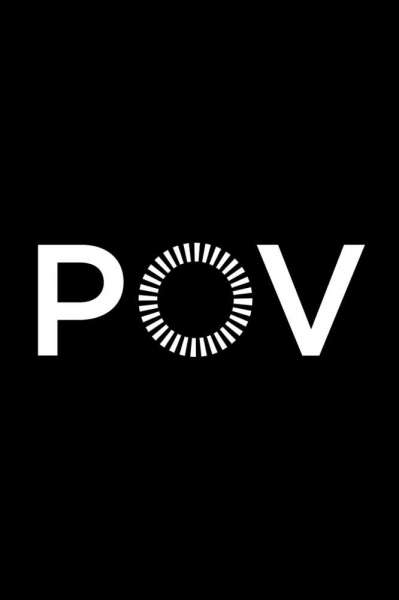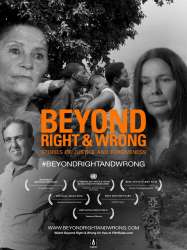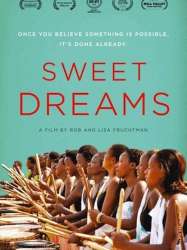Lumo is a film
Lumo (2006)

If you like this film, let us know!
- Infos
- Casting
- Technical infos
- Photos
- Videos
- Film quotes
- Characters
- Music
- Awards
Length 1h12
Lumo is a 2007 documentary film about twenty-year-old Lumo Sinai, a woman who fell victim to "Africa's First World War." While returning home one day, Lumo and another woman were gang-raped by a group of soldiers fighting for control of the Democratic Republic of the Congo during the 1994 Rwandan genocide. As a result, Lumo suffered from a traumatic fistula, a chronic condition that leaves her unable to bear children. Rejected by her fiance and most of the village, Lumo examines a woman's tragedy and the process of healing.
Lumo was directed and produced by Bent-Jorgen Perlmutt, Nelson Walker III, Louis Abelman and Lynn True and was aired as part of PBS's Point of View series in 2007.
Comments
Leave comment :
Suggestions of similar film to Lumo
There are 11441 films with the same themes (including 16 films with the same 9 themes than Lumo), to have finally 70 suggestions of similar films.If you liked Lumo, you will probably like those similar films :

Flower in the Gun Barrel (2008)
Origin USA
Genres Documentary
Themes Films set in Africa, Films about racism, Documentary films about racism, Documentary films about law, Documentary films about war, Documentary films about historical events, Documentaire sur une personnalité, Documentary films about politics, Political films
Rating80%





To a large extent, the film consists of interviews with genocide survivors, many of whom were children in 1994. In all, over thirty survivors, perpetrators, and experts were interviewed for the film. In these interviews, the survivors discuss what it means to be a Rwandan and to live next door to people who killed their families. The survivors describe how they deal with their country's request that they forgive one another and move on, so that Rwanda can rebuild and unify itself. Perpetrators' views illuminate the madness that seized the culture in 1994; exploring the experience of apologizing to victims, and examining what it is like to be looked at as a murderer in Rwandan society.

Rwanda pour mémoire (2003)
, 1h8Directed by Samba Félix Ndiaye
Origin France
Genres Documentary
Themes Films set in Africa, Films about writers, Films about racism, Documentary films about racism, Documentary films about law, Documentary films about war, Documentary films about historical events, Documentaire sur une personnalité, Documentary films about politics, Political films
In 1994, between April and July, the massacre of Tutsis and moderate Hutus left one million dead. Instigated by Fest’Africa, a dozen African authors met four years after the events as writers in residence at Kigali, to try to break the silence of African intellectuals on this genocide.
 , 1h20
, 1h20Directed by Roger Spottiswoode
Origin USA
Genres Documentary
Themes Films set in Africa, Films about racism, Films about religion, Films about terrorism, Documentary films about racism, Documentary films about law, Documentary films about war, Documentary films about historical events, Documentaire sur une personnalité, Documentary films about politics, Documentary films about religion, Political films, Films about Jews and Judaism
Rating71%





 , 54minutes
, 54minutesDirected by Anne Aghion
Themes Films set in Africa, Films about racism, Documentary films about racism, Documentary films about law, Documentary films about war, Documentary films about historical events, Documentaire sur une personnalité, Documentary films about politics, Political films
Rating70%





Set in Rwanda, Anne Aghion, the director, interviews a genocide offender who has been released back into his community, and the victims of the genocide. The film follows how at first, the coexistence between the people who instigated the genocide and the victimized people is unbearable. Many of the victims feel rage toward their former oppressors. But gradually, the victims and oppressors start talking to the camera, and then to each other as they start the difficult task of living with each other. The documentary portrays how the people's spirits cannot be crushed by the Rwandan Genocide, the 1994 mass killing of hundreds of thousands of Rwanda's minority Tutsis and the moderates of its Hutu majority by the Interahamwe and the Impuzamugambi.

Sweet Dreams (2012)
, 1h26Directed by Lisa Fruchtman
Origin USA
Genres Drama, Documentary, Historical, Musical
Themes Films set in Africa, Films about music and musicians, Films about racism, Documentary films about racism, Documentary films about law, Documentary films about war, Documentary films about historical events, Documentary films about music and musicians, Documentaire sur une personnalité, Documentary films about politics, Musical films, Political films
Rating76%






L'Afrique en morceaux (2000)
, 1h44Origin France
Genres Documentary
Themes Films set in Africa, Films about racism, Documentary films about racism, Documentary films about law, Documentary films about war, Documentary films about historical events, Documentaire sur une personnalité, Documentary films about politics, Political films
April, 1994. Genocide in Rwanda. 800,000 dead. A catastrophe that upset the balance in the entire region. The Great Lakes region of Africa ended the year with a bloodbath. This documentary shows the intrigues, the dramatic effects, the treasons, the vengeances that prevailed over those years and whose only goal was to maintain or increase each faction’s area of influence. In just ten years, the population saw all their hopes vanish: The dream of an Africa in control of its own destiny, alimentary self-sufficiency, the end of interethnic conflicts.

Umurage (2002)
, 52minutesOrigin Espagne
Genres Documentary
Themes Films set in Africa, Films about racism, Documentary films about racism, Documentary films about law, Documentary films about war, Documentary films about historical events, Documentaire sur une personnalité, Documentary films about politics, Political films
In Rwanda, a hundred members of the Ukuri Kuganze Association, made up in its majority by survivors of the genocide, and a few of their executioners, freed after having confessed and asked for forgiveness in 2003, meet at a reinsertion center. These executioners are going home, in most cases to the same places where they carried out their crimes, and will have to "face" their victims and ask their forgiveness. In 1994, over a space of just one hundred days, almost a million people were murdered, that makes 10,000 dead per day.

The Notebooks of Memory (2008)
, 53minutesDirected by Anne Aghion
Origin France
Themes Films set in Africa, Films about racism, Documentary films about racism, Documentary films about law, Documentary films about war, Documentary films about historical events, Documentaire sur une personnalité, Documentary films about politics, Political films
Anne Aghion's third film in her Rwanda series concentrates on the local citizen-judges' tribunals, where they must weigh survivor accounts of the genocide massacres against the perpetrators' testimony.

Screamers (2006)
, 1h29Origin USA
Genres Documentary
Themes Films set in Africa, Films about racism, Documentary films about racism, Documentary films about law, Documentary films about war, Documentary films about historical events, Documentaire sur une personnalité, Documentary films about politics, Political films
Actors Shavo Odadjian
Rating58%





 , 1h34
, 1h34Origin USA
Genres Documentary
Themes Films set in Africa, Films about racism, Documentary films about racism, Documentary films about law, Documentary films about war, Documentary films about historical events, Documentaire sur une personnalité, Documentary films about politics, Political films
Actors Helen Mirren
Rating75%





 Connection
Connection